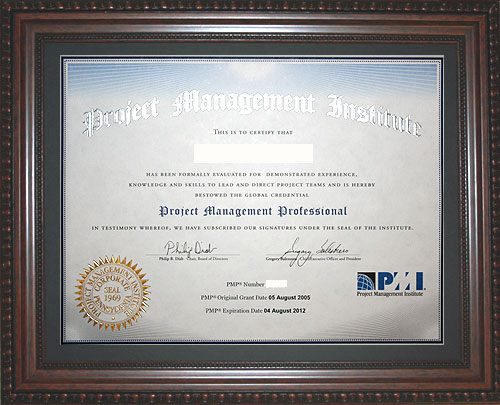
In today's job market, keeping up with changes is key. Getting a talent development certification can really help. Did you know that having a certification might mean you earn up to 25% more than those without one? As 2025 approaches, career paths are shifting fast. Certifications like the ATD Certified Professional in Talent Development (CPTD) and the Project Management Professional (PMP) are becoming more important. Whether you're experienced or just starting, these credentials can sharpen your skills and boost your standing in a competitive market. In this article, we'll look at top certifications that can really push your career forward, giving you the tools and recognition to succeed. Ready to invest in your future and make a real impact? Let's explore talent development certifications and see how they can change your career path!
ATD Certified Professional in Talent Development (CPTD)
Comprehensive Certification Overview
The Certified Professional in Talent Development (CPTD) is designed for seasoned talent development professionals with at least five years of experience. Recognized globally, it demonstrates proficiency across various talent development domains. The certification is aligned with the ATD Talent Development Capability Model, which outlines the exam content.
To qualify for the CPTD, candidates must meet specific criteria:
- Option 1: Five years of experience and 60 hours of relevant learning within the past five years.
- Option 2: Four years of experience and an active Associate Professional in Talent Development (APTD) certification.
Learning can be acquired through courses, workshops, webinars, conferences, or university classes related to talent development.
The exam is challenging, consisting of 150 questions—90 multiple-choice and 10 case problems—completed within three hours. It assesses practical application of talent development concepts beyond theoretical knowledge. Achieving the CPTD signifies expertise in employee learning and organizational skill-building.
Career Advantages of CPTD Certification
Earning a CPTD offers significant advantages for talent development professionals:
- Professional Recognition: It signifies advanced skills and professionalism, enhancing career credibility and leadership opportunities.
- Employer Appeal: Demonstrates strategic thinking and leadership capabilities, with a comprehensive understanding of talent development.
CPTD holders often manage organizational talent development initiatives, which can lead to career advancement, increased salary, and greater recognition. For example, it could pave the way to a leadership role in learning strategy, encompassing more responsibilities and a higher pay scale.
Additionally, CPTD certification connects you to a global network of talent development experts, facilitating idea exchange, collaboration, and mentorship—key elements for professional growth.
CPTD Exam Preparation and Costs
Preparing for the CPTD exam requires strategic planning and effort:
- Log Learning Hours: Ensure you've completed the required 60 hours of learning in the past five years before applying.
- Study Resources: Familiarize yourself with the Talent Development Capability Model and consider review courses or bootcamps covering exam topics.
Exam Fees:
- ATD Members: $999
- Non-Members: $1,500
Check the ATD Certification Institute website for the most current fee information. Approval is required before scheduling the exam, which is a three-hour test available at centers worldwide or online with a proctor.
Preparation Strategy:
- Conduct a self-assessment based on the Talent Development Capability Model to identify areas for improvement.
- Utilize ATD resources, including courses that can account for up to 20 hours of learning. Options include in-person, online, and self-paced courses, webinars, and certificate programs.
In essence, the CPTD is a worthwhile investment in your career. By meeting the requirements, preparing thoroughly, and leveraging available resources, you can enhance your skills and knowledge, leading to certification and career advancement. The benefits, such as higher pay and recognition, often outweigh the initial costs.
ATD Associate Professional in Talent Development (APTD)
Overview of APTD Certification
The Associate Professional in Talent Development (APTD) certification is tailored for individuals embarking on a career in talent development. To qualify, candidates must have at least three years of paid experience with adult learners in this field and should have completed 28 hours of professional development in the past three years. This certification is particularly recognized among professionals with three to five years of experience, with about 15% of certified individuals holding management positions.
The APTD exam is a significant component of the certification process. It includes 115 multiple-choice questions, with a two-hour time limit to complete. The exam emphasizes foundational knowledge from the Talent Development Capability Model, focusing on essential skills for early-career professionals. Achieving this certification demonstrates foundational skills and knowledge in talent development, especially for those involved in designing and implementing training programs.

APTD Certification Pros and Cons
Pros:
- The APTD certification is highly regarded within the talent development community.
- It provides a solid foundation, indicating a commitment to one's career.
- The preparation process is comprehensive yet manageable, with most candidates dedicating 60 to 80 hours to study, fitting well into a working professional's schedule.
- This preparation ensures a thorough understanding of the material, effectively preparing candidates for the exam.
Cons:
- Meeting the requirement of three years of professional experience and 28 hours of development can be challenging for newcomers.
- The exam necessitates focused preparation and a solid grasp of the Talent Development Capability Model, which might require extensive study time based on one's background.
- Balancing exam preparation with work and personal life can be demanding.
Effective Study Strategies for APTD Exam
Preparing for the APTD exam requires a strategic approach. Most candidates allocate 60 to 80 hours to study, concentrating on their strengths and weaknesses within the Talent Development Capability Model. A thorough exploration of the Developing Professional Capability and Impacting Organizational Capability areas is essential.
To apply, visit ATD CI, pay the necessary fees, and schedule your exam. The exam can be taken at a test center or online. The APTD Candidate Handbook on the ATD CI website is an invaluable resource, providing detailed information on exam content, policies, and procedures.
Participating in structured, facilitator-led training programs can significantly enhance preparation. These programs often include lectures, scenarios, case studies, and practice tests, boosting confidence. Additionally, self-paced learning and ATD resources can further enrich your study efforts. To maintain your APTD credential, renewal is required every three years through continuing education units (CEUs), continuing professional development (CPD), or re-examination, offering at least two renewal options.

In summary, the APTD certification is a valuable asset for those at the beginning of their talent development careers. It equips professionals with foundational skills and knowledge necessary for advancement. Although meeting the requirements and finding preparation time can be challenging, the professional recognition and career enhancement make the effort worthwhile. With a robust preparation plan and the right resources, earning the APTD certification can unlock opportunities for future growth in talent development.
Project Management Professional (PMP)
PMP Certification Details
The Project Management Professional (PMP) certification, offered by the Project Management Institute (PMI), is a respected credential recognized worldwide. It demonstrates proficiency in project management, making it highly sought after by experienced project managers.
To obtain the PMP certification, candidates must meet specific requirements based on their education and project management experience:
- High school diploma: 60 months of project management experience.
- Bachelor's degree: 36 months of project management experience.
- GAC-accredited program graduates: 24 months of project management experience.
Additionally, all candidates must complete 35 hours of project management education, achievable through courses or by holding a Certified Associate in Project Management (CAPM) certification.
The PMP exam assesses knowledge and skills across various project management areas. The exam fee ranges from $405 to $675, depending on PMI membership status. Upon passing, the PMP certification is valid for three years and can be renewed by earning professional development units, ensuring skills remain current.
Career Advancement with PMP Certification
Achieving PMP certification can significantly enhance a project manager's career. This globally recognized credential signifies advanced skills and a commitment to professional growth, often resulting in higher pay and more job opportunities. Employers value PMP-certified professionals for their proven ability to lead and manage projects effectively, paving the way for roles like senior project manager or program manager.

Research indicates that PMP-certified individuals earn 20% to 33% more than their non-certified counterparts, underscoring the financial benefits of certification. The PMP credential not only represents excellence but also aids employers in identifying skilled candidates, leading to improved project outcomes and customer satisfaction. In project management-intensive industries, a PMP can substantially boost credibility and career prospects.
PMP Exam Preparation and Support
Preparing for the PMP exam requires careful planning and dedication. Candidates must document their project experience and complete the required project management education hours before applying through PMI’s online system. The 35-hour education requirement can be fulfilled through various means, such as formal courses, online training, or holding a CAPM certification.
PMI and numerous training providers offer a wealth of resources to support candidates, including study guides, practice exams, and flexible online courses. Opting for an online PMP prep course can provide the necessary education hours and access to practice exams, greatly enhancing the likelihood of success.
Mentorship and peer support play a crucial role in preparation. Joining a study group or a local PMI chapter connects candidates with others pursuing PMP certification, allowing for resource sharing, insights, and encouragement throughout the preparation journey.
Maintaining a disciplined study schedule and setting realistic goals are vital for success. Regular study time should be allocated each week, focusing on understanding concepts rather than rote memorization. By methodically approaching preparation and utilizing available resources, candidates can increase their chances of passing the exam and earning this esteemed certification.
PMP certification not only validates project leadership and management skills but also equips professionals to navigate changing business environments. It encompasses predictive, agile, and hybrid project management methodologies, preparing individuals for the dynamic nature of modern project management. The certification is grounded in the globally recognized PMBOK® Guide, covering essential skills such as business acumen, risk management, leadership, and communication—critical for successful project delivery.
PMP certification is often regarded as the gold standard in project management credentials, offering enhanced credibility, career growth, and job security. Certified professionals frequently experience increased confidence in their skills and greater recognition from employers and peers, leading to improved job opportunities and higher compensation. Employers view PMP certification as a dependable means of identifying skilled candidates and enhancing project outcomes and customer satisfaction.
Frequently Asked Questions on Talent Development Certification
Top Talent Development Certifications for Career Growth in 2025
As the job market shifts, getting certified becomes increasingly vital for career advancement, particularly in talent development. By 2025, certain certifications will stand out. The Associate Professional in Talent Development (APTD) and the Certified Professional in Talent Development (CPTD) are noteworthy.
-
APTD: Ideal for HR professionals or trainers with 3-5 years of experience, focusing on foundational skills like communication, emotional intelligence, and cultural awareness.
-
CPTD: Geared towards those with over five years of experience, covering extensive knowledge and practical skills in talent development, including data analysis, talent strategy, training delivery, and cultural awareness. The CPTD exam is rigorous, featuring 150 questions and case studies to assess expertise.
Another notable certification is the Certified Learning and Development Professional (CLDP), recognized globally. It enhances skills in corporate training, performance management, and succession planning. Additional valuable credentials include the ATD Instructional Design Certificate and executive-level certificates from institutions like Penn GSE. Together, these certifications can pave the way for career growth in 2025, equipping you with the tools to succeed in today's workplaces.
Benefits of the ATD Certified Professional in Talent Development (CPTD) Certification
The CPTD certification is a significant asset for those aiming to climb the ladder in talent development. It evaluates your knowledge and skill application, crucial for progression in HR and Learning and Development sectors. This certification is most suitable for individuals with more than five years of experience, testing competencies in data, metrics, talent strategy, training delivery, and cultural awareness.
-
Commitment to Excellence: Holding the CPTD demonstrates dedication to learning and excelling, aiding in career advancement and leadership roles.
-
Comprehensive Exam: The exam is thorough, with 150 questions and case problems over three hours, showcasing your readiness to tackle complex talent development challenges.
-
Strategic Alignment in Talent Development: It enables you to design and execute learning strategies that align with company goals, proving the worth of talent development to stakeholders and gaining leadership support.
-
Performance Improvement Focus: Focuses on enhancing performance by identifying and addressing skill gaps in employees.

Key Differences Between APTD and CPTD Certifications
The APTD and CPTD certifications from the Association for Talent Development (ATD) cater to different experience levels in talent development. Understanding the differences can help you choose the right certification.
Target Audience for Talent Development Certifications
-
APTD: Designed for talent development professionals with at least three years of experience, emphasizing foundational skills like communication and cultural awareness. It suits those early in their careers and requires professional development hours or ATD Master Series certificates.
-
CPTD: Aimed at seasoned professionals with a broader range of duties, requiring at least five years of experience. It covers more advanced topics, including project management, compliance, and change management.
Competency Requirements for Talent Development
-
APTD: Concentrates on basics.
-
CPTD: Delves deeper into advanced topics like change management and coaching. The CPTD exam is more challenging, reflecting its advanced level.
Experience and Exam Details
-
APTD Exam: Simpler in nature.
-
CPTD Exam: Consists of 150 questions and case problems over three hours, demanding deeper expertise for leadership roles.
In summary, choosing between APTD and CPTD depends on your career stage and goals. Both certifications enhance career prospects but serve distinct roles in talent development.
| Certification | Experience Requirement | Learning Hours Requirement | Exam Details | Exam Fee (Members/Non-Members) |
|---|---|---|---|---|
| CPTD | 5 years (Option 1) or 4 years + APTD (Option 2) | 60 hours in the past 5 years | 150 questions (90 multiple-choice, 10 case problems) | $999 / $1,500 |
| APTD | 3 years | 28 hours in the past 3 years | 115 multiple-choice questions | Varies |
| PMP | High school diploma: 60 months or Bachelor's degree: 36 months or GAC-accredited program: 24 months | 35 hours | Varies | $405 / $675 |
This table provides a clear comparison of the requirements and details for the CPTD, APTD, and PMP certifications, focusing on experience, learning hours, exam details, and fees.